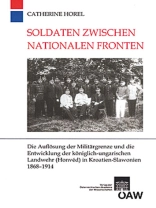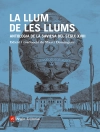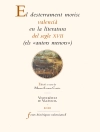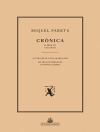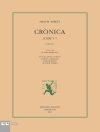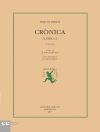Die ungarische Landwehr (Honvéd) entstand im Zuge des Ausgleichs mit Österreich 1867 und der folgenden Reform der Wehrmacht und entwickelte sich zu einer ungarischen Nationalarmee, während gleichzeitig ihre kroatischen Einheiten einen national-kroatischen Charakter annahmen. Ein unabhängiges Heer, wenn auch nur neben der gemeinsamen österreichisch-ungarischen Armee, bildete für Ungarn einen bedeutenden Faktor seiner nationalen Identität. Das zentrale Anliegen der Kroaten war dagegen territorial, nämlich die Vereinigung des ungarischen Kroatien-Slawonien mit dem österreichischen Dalmatien und der Militärgrenze. Dabei spielten die kroatisch-slawonischen Einheiten von Honvéd und Gendarmerie eine besondere Rolle sowohl im Hinblick auf den habsburgischen Gesamtstaat als auch bezüglich der Nationswerdung der Kroaten und des Verhältnisses des Dreieinigen Königreiches Kroatien, Slawonien und Dalmatien zum Königreich Ungarn. In diesen Einheiten war das Kroatische nicht nur Regiments-, sondern auch Kommando- und gleichzeitig innere Dienstsprache. Im Gegensatz zum gemeinsamen Heer lebten hier Mannschaft und Offiziere in einer fast einsprachigen Welt. Damit standen die kroatischen Offiziere und Soldaten und die kroatischen Regimenter im Spannungsfeld sowohl der ungarisch-gesamtstaatlichen Konkurrenz wie auch des magyarisch-kroatischen Nationalitätenkonfliktes, wobei die Sprachenfrage am Ende des 19. Jahrhunderts immer virulenter wurde.
…
The Hungarian Defence Force (Honvéd) was created after the conclusion of the Austro-Hungarian Compromise in 1867 and the subsequent reforms of the armed forces. While the Honvéd gradually became a Hungarian national army, its Croatian units developed a distinctly national-Croatian character. Despite its being part of the common Austrian-Hungarian Armed Forces, for Hungary an independent army was a central aspect of its national identity. For Croatia, the primary national demand was territorial, namely the reunification of Croatia-Slavonia with Austrian Dalmatia and the Military Border. Here, the Croatian units of the Honvéd played a central role in the relations to the Habsburg common state (Gesamtstaat), the Croatian nation-building, and the relationship of the Kingdom of Croatia, Slavonia and Dalmatia to the Hungarian Kingdom. In these units, Croatian was not only the language of the military commands, but also the only language of communication within and between the regiments and their superiors. In contrast to the Common Army, its soldiers and officers lived in a nearly monolingual world. The Croatian Honvéd regiments were thus caught between the conflicting priorities of Hungary, Austria and the Habsburg Empire, as well as those between the Magyar-Croatian nationalities, with debates concerning language growing ever more virulent at the end of the 19th century.
Catherine Horel
Soldaten zwischen nationalen Fronten [PDF ebook]
Die Auflösung der Militärgrenze und die Entwicklung der königlichungarischen Landwehr (Honvéd) in Kroatien-Slawonien 1868-1914
Soldaten zwischen nationalen Fronten [PDF ebook]
Die Auflösung der Militärgrenze und die Entwicklung der königlichungarischen Landwehr (Honvéd) in Kroatien-Slawonien 1868-1914
¡Compre este libro electrónico y obtenga 1 más GRATIS!
Idioma Alemán ● Formato PDF ● Páginas 262 ● ISBN 9783700168171 ● Tamaño de archivo 2.6 MB ● Editorial Verlag der österreichischen Akademie der Wissenschaften ● Publicado 2010 ● Edición 1 ● Descargable 24 meses ● Divisa EUR ● ID 2204986 ● Protección de copia DRM social
